 | TODAY IN SCIENCE HISTORY
NEWSLETTER - 31 OCTOBER |
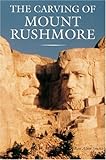 On 31 Oct 1941, work at Mount Rushmore finally ended on the four monumental heads of U.S. presidents. Today's Science Store pick is: The Carving of Mount Rushmore, by Rex Alan Smith, who was born and raised within sight of the spectacular sculpture. He draws the total picture of the dynamics that went into the creating of Mount Rushmore, beyond just the unbelievable effort of the eccentric sculptor, Gutzon Borglum. The author's inclusion of personal interviews with some of the people associated with the project provides glimpses of their experiences now rapidly fading into history. It is amazing that Mount Rushmore ever was carved. More than 60 black-and-white photographs offer unique views of this gargantuan effort. The narrative is compelling, and you will want to visit the monument, or go back to view it again to see what you missed before from lack of knowledge! It is available New from $11.30. Used from $2.89. (As of time of writing.). On 31 Oct 1941, work at Mount Rushmore finally ended on the four monumental heads of U.S. presidents. Today's Science Store pick is: The Carving of Mount Rushmore, by Rex Alan Smith, who was born and raised within sight of the spectacular sculpture. He draws the total picture of the dynamics that went into the creating of Mount Rushmore, beyond just the unbelievable effort of the eccentric sculptor, Gutzon Borglum. The author's inclusion of personal interviews with some of the people associated with the project provides glimpses of their experiences now rapidly fading into history. It is amazing that Mount Rushmore ever was carved. More than 60 black-and-white photographs offer unique views of this gargantuan effort. The narrative is compelling, and you will want to visit the monument, or go back to view it again to see what you missed before from lack of knowledge! It is available New from $11.30. Used from $2.89. (As of time of writing.). | | For picks from earlier newsletters, see the Today in Science History Science Store home page. | |
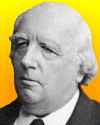 | It is true that a mathematician who is not somewhat of a poet, will never be a perfect mathematician. - Karl Weierstrass, German mathematician (born 31 Oct 1815).  |
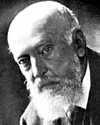 | This [discovery of a cell-free yeast extract] will make him famous, even though he has no talent for chemistry. - Adolf von Baeyer, German chemist (born 31 Oct 1835).  |
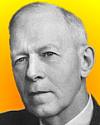 | While it is never safe to affirm that the future of Physical Science has no marvels in store even more astonishing than those of the past, it seems probable that most of the grand underlying principles have been firmly established and that further advances are to be sought chiefly in the rigorous application of these principles to all the phenomena which come under our notice. - Robert Sanderson Mulliken, American chemist and physician (died 31 Oct 1986).  |
| Before you look at today's web page, see if you can answer some of these questions about the events that happened on this day. Some of the names are very familiar. Others will likely stump you. Tickle your curiosity with these questions, then check your answers on today's web page. |
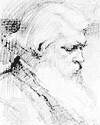 | Sir Joseph Wilson Swan was an English scientist, chemist, physicist and inventor, born 31 Oct 1828. He began experiments in the 1840�s and obtained a UK patent in 1860 for his invention before Thomas Edison.
 What was this invention? |
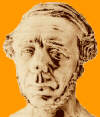 | On 31 Oct 1802, Beno�t Fourneyron was born, a French engineer remembered for his invention of a way to harness water power.
 What was Fourneyron's water-power invention ? |
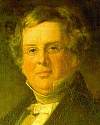 | Lord Rosse (1800-1867) William Parsons, 3rd Earl of Rosse was an Irish astronomer who built the largest reflecting telescope of the 19th century. He learned to polish metal mirrors (1827) and spent the next few years building a 36-inch telescope. He later completed a giant 72-inch telescope (1845) which he named “Leviathan.”
 What stellar objects was he then the first to be able to resolve? |
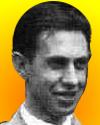 | George Eugene Uhlenbeck (1900-1988) was a Dutch-American physicist who, with Samuel A. Goudsmit, whose experiment with a beam of silver atoms across a magnetic field demonstrated a quantum effect, and was an early confirmation of the quantum theory. For this effect, they proposed an application for a fourth quantum number which was a signed half integer.
 To what concept was this quantum number applied? |
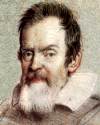 | On 31 Oct of a certain year, the Vatican admitted erring in formally condemning Galileo Galilei for entertaining scientific truths such as the Earth revolves around the sun it, which the Roman Catholic Church long denounced as anti-scriptural heresy. After 13 years of inquiry, the Pope's commission of historic, scientific and theological scholars brought the pope a “not guilty” finding for Galileo.
 In what decade was the record set straight on Galileo? |
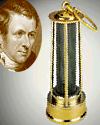 | On 31 Oct 1815, English chemist, Sir Humphrey Davy of London patented the miner's safety lamp. Miners at work constantly met firedamp, an explosive mix of methane gas and air, during the working of coal. This was an almost insurmountable obstacle to the working of many of the collieries until the discovery of the safety lamp.
 What physics explains why this invention prevents the flame in this lamp from causing an explosion? |
When you have your answers ready to all the questions above, you'll find all the information to check them, and more, on the October 31 web page of Today in Science History. Or, try this link first for just the brief answers.
Fast answers for the previous newsletter for October 30: Domagk was intimidated from accepting the 1939 prize by Hitler, who had been enraged with the committee's award of the Peace Prize to a German in a concentration camp. • the “chemical knives” to cut genes (= DNA) into defined fragments; used (1) to determine the order of genes on chromosomes, (2) to analyse the chemical structure of genes and of regions of DNA which regulate the function of genes, (3) to create new combinations of genes • power weaving loom • that energy can be absorbed by an atom only in definite amounts, important in quantum theory and the Bohr atomic model. • decade containing the year 1925 • time clock. |
 If you enjoy this newsletter, the website, or wish to offer encouragement or ideas, please send feedback by using your mail reader Reply button. If you enjoy this newsletter, the website, or wish to offer encouragement or ideas, please send feedback by using your mail reader Reply button.
Your click on a StumbleUpon, Google+ or Facebook social button on the site webpages is also a welcome sign of appreciation. Thank you for using them. |
To find citations for quotations go to the corresponding webpage by clicking on the “quotes” balloon icon. Sources for the thumbnails appear on today's webpage with the corresponding item.
� This newsletter is copyright 2013 by todayinsci.com. Please respect the Webmaster's wishes and do not put copies online of the Newsletter � or any Today in Science History webpage. (If you already have done so, please remove them. Thank you.) Offline use in education is encouraged such as a printout on a bulletin board, or projected for classroom viewing. Online, descriptive links to our pages are welcomed, as these will provide a reader with the most recent revisions, additions and/or corrections of a webpage. For any other copyright questions, please contact the Webmaster by using your mail reader Reply button. |
--
If you do not want to receive any more newsletters,
Unsubscribe To update your preferences and to unsubscribe visit
this link 






 What was this invention?
What was this invention? 
 What was Fourneyron's water-power invention ?
What was Fourneyron's water-power invention ? 
 What stellar objects was he then the first to be able to resolve?
What stellar objects was he then the first to be able to resolve? 
 To what concept was this quantum number applied?
To what concept was this quantum number applied? 
 In what decade was the record set straight on Galileo?
In what decade was the record set straight on Galileo? 
 What physics explains why this invention prevents the flame in this lamp from causing an explosion?
What physics explains why this invention prevents the flame in this lamp from causing an explosion?  If you enjoy this newsletter, the website, or wish to offer encouragement or ideas, please send feedback by using your mail reader Reply button.
If you enjoy this newsletter, the website, or wish to offer encouragement or ideas, please send feedback by using your mail reader Reply button. 

Δεν υπάρχουν σχόλια:
Δημοσίευση σχολίου